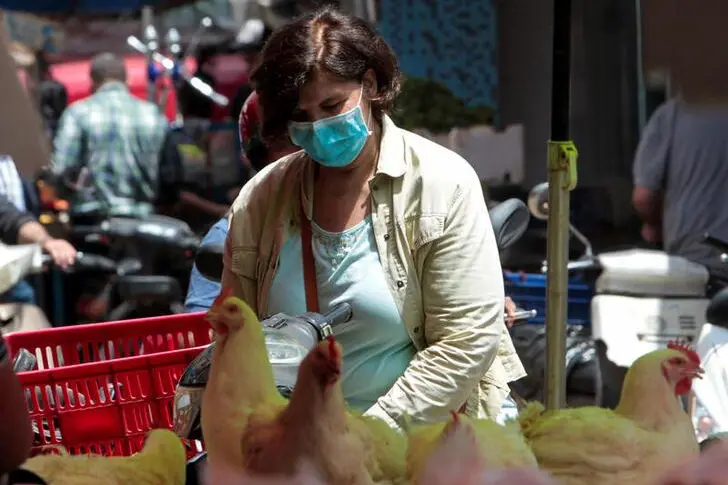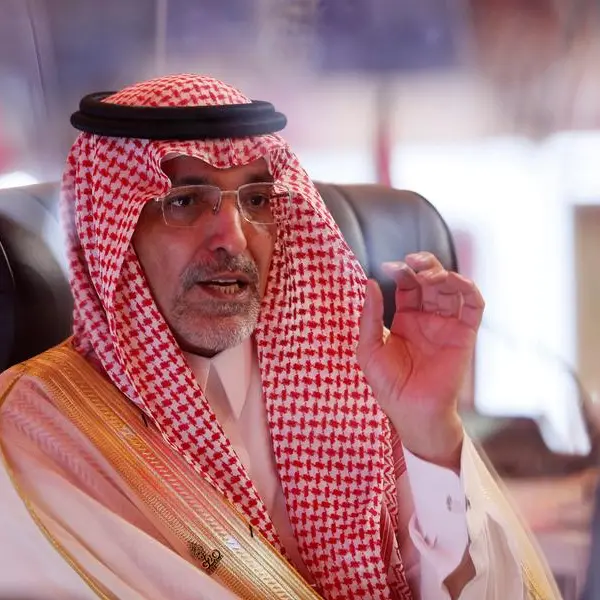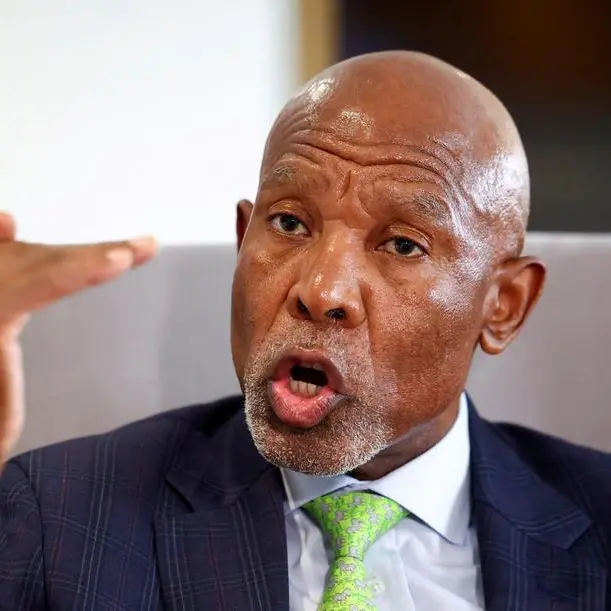PHOTO
BEIRUT: Prices of basic commodities in Lebanon could soar as high as 400 percent if authorities fail to find an alternative strategy once the Central Bank ends its subsidies program in November, economists and consumer protection groups warned.
Prices of most commodities in the country have already jumped in August, according to Consumer Lebanon.
It noted that the prices of food and other essential items during the month rose by an average of 22.84 percent.
The political paralysis, dwindling foreign currency reserves and strict capital controls applied by Lebanese commercial banks have caused the sharp devaluation of the Lebanese pound which hit over LL8,000 against the U.S. dollar.
The state is currently facing a tough paradox of double-edge sword: Either it decides to stop subsidies in November, which means hyperinflation and additional socio-economic pressures on households as the prices of wheat, gasoline and pharmaceuticals would be inflated by 400 percent if left to the market. This means an additional 100 percent rise to the overall CPI which has reported 120 percent on annual basis in August, Marwan Barakat, group chief economist and head of research at Bank Audi, told The Daily Star.
He said the other option was to continue subsidizing, which means putting at stake the required FX reserves and ultimately customers' FX deposits at banks.
The only way to break such a vicious circle is to secure foreign assistance amid the new government agreeing with the IMF on a full-fledged program that would bring some credibility to the states reform implementation and thus draw in other donors to assist Lebanon, Barakat said.
He added that the only real glimpse of hope that rises at this level is the broad French initiative, assuming that current obstacles facing the initiative are removed, a credible Cabinet is formed soon, an international conference for Lebanon is arranged and the road for adjustment reforms is subsequently paved.
There is no doubt that the prevailing financial and monetary imbalances the country is suffering from are massive. However, exits are still possible if the political will is there, if the right choices are made and if drastic measures are taken without delay by the upcoming government and concerned authorities, so that the country gets out of the woods with time, Barkat said.
This warning came as BDL prepares to end in November of this year its subsidies program that covered three basic items: fuel oil, wheat and pharmaceutical products.
On Aug. 20, a senior government official told The Daily Star that BDL Governor Riad Salameh had informed the caretaker government of Prime Minster Hassan Diab that he would not be able to continue the subsidies program beyond four months.
Central Bank Governor Riad Salameh informed the government in the last meeting that BDL could only use $2.3 billion of the $19.8 billion foreign currency reserves to subsidize basic items. This means BDL could continue injecting only $700 million a month for the next three months, the source told The Daily Star on condition of anonymity.
BDLs foreign currency reserves have dwindled sharply over the past year due to the sharp devaluation of the national currency against the US dollar and its constant intervention in the market to keep the Lebanese pound stable.
The governor told the government before its resignation that the remaining foreign currency reserves belonged to the depositors and for this reason he was not going to touch them.
The official explained that once BDL ends subsidies of these basic items, the prices of these items will be in line with the international market meaning consumers will notice a dramatic increase in the prices of fuel oil, bread and medications in the market.
The International Monetary Fund has always called for the lifting of all subsidies programs in Lebanon and has urged the successive government to create a safety net to help impoverished families to compensate for the expected surge in the prices of commodities once the subsidies have ended.
Nassib Ghobril, the head of Economic Research at Byblos Bank, said widespread subsidies on imported consumer and other products was a concept of centrally planned economies, and this approach, despite seemingly benefitting households temporarily, has proved to be costly and inefficient in almost any country that has implemented them.
Banque du Liban has been subsidizing the import of hydrocarbon products, wheat, medicine and medical equipment, in addition to the basket of 200 consumer goods and basic raw materials for agriculture and industry. Such imports are usually subsidized by the Treasury, but in the case of Lebanon the burden has been exclusively on Banque du Liban. As a result, this has contributed to the decline in Banque du Libans assets in foreign currency by $8.43 billion, or by about 27 percent, since the beginning of the year, (when excluding Eurobonds held by BDL), Ghobril said.
He added that the subsidies had not led to a significant decline in the import process and resulted in smuggling of some subsidized products to neighboring countries, given the significant price differentials. In addition, the government did not provide a timetable for these subsidies nor a precise cost when it announced the subsidies on the basket of consumer goods and raw materials.
Given the drying up of capital inflows following the governments decision on March 7 to default on its foreign obligations, Banque du Liban has signaled that it cannot continue to subsidize this wide range of imports indefinitely, as the combination of these two factors has been draining its foreign currency reserves, Ghobril stressed.
He added that lifting the subsidies abruptly and completely was also not the solution, as it would hurt already-struggling households.
Further, the International Monetary Fund does not favor subsidies, as its approach in other countries shows that it encourages the gradual reduction in subsidies either to narrow the fiscal deficit by reducing public expenditures, or to stop the drain of foreign currency reserves. A deal between Lebanon and the IMF would inevitably include a gradual lifting of subsidies, Ghobril said.
He proposed a three-pronged approach to address the prevailing challenge: First is using part of Banque du Libans gold reserves that have exceeded $18 billion as of mid-September, to take an overdraft of $5 billion to $6 billion that will be deposited at Banque du Liban to inject liquidity in the market and to continue the subsidies but through a drastically different approach.
Second, the new subsidies mechanism should support poor and needy households, instead of subsidizing the import process as is currently the case.
Third, the lifting of subsidies at this stage should start with reducing subsidies on electricity tariffs, as it is a main contributor to the fiscal deficits and to the size of the public debt. This will reduce what the World Bank calls non-technical losses, or theft, and alleviate pressure on foreign reserves. Also, this will result in large consumers of electricity paying market prices, rather than subsidized tariffs, for their electricity consumption.
Copyright 2020, The Daily Star. All rights reserved. Provided by SyndiGate Media Inc. (Syndigate.info).





















